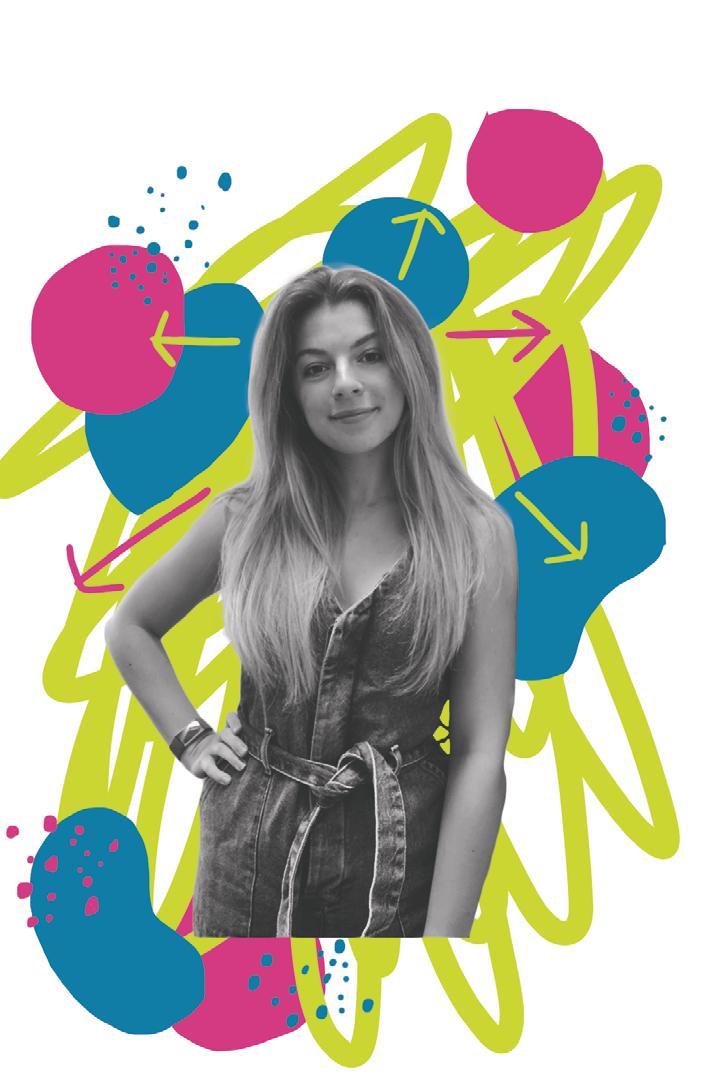
5 minute read
Think like an entrepreneur
By Emily Clements
Emily Clements, Research Assistant & PhD Candidate at King’s, explores whether you can cultivate a growth mindset by understanding neuroplasticity in the brain.
Advertisement
I am a Research Assistant and PhD candidate at King’s College London, working with Dr Vincent Giampietro and Professor Steven Williams in the Department of Neuroimaging, in collaboration with Julie Devonshire at the Entrepreneurship Institute. My current research focuses on the Neuroscience of Entrepreneurship.
People often debate whether entrepreneurs are born or made. Evidence suggests they’re mainly shaped by their environment, rather than genetics – but more research is needed.
‘I believe that entrepreneurial thinking can be developed, the same as any other skill. But this requires perseverance, the right environment and mindset and a lot of practise.’
I believe that entrepreneurial thinking can be developed, the same as any other skill, although this requires perseverance, the right environment and mindset, and a lot of practise. With my PhD and work on this collaborative project, I aim to show how expertise in entrepreneurial thinking corresponds to neural differences within the brain.
Entrepreneurship and the growth mindset
What we already know is that entrepreneurs are experts in thinking innovatively and being effective decision makers, particularly in volatile environments. They aren’t afraid to push themselves outside of their comfort zones, and often have to persevere and drive forward when they cannot predict the outcome of their actions. These are factors which resonate with theories of a ‘growth mindset’.
The growth mindset is a concept created by American psychologist Carol neuroplasticity may help us understand Dweck (1988). It’s based on the idea that people have underlying beliefs about learning and intelligence: either the fixed mindset, or the growth mindset.
Fixed mindset:
Those with a fixed mindset believe that intelligence is static. This makes them more likely to internalise failure, exert less effort when faced with difficulty, experience self-imposed limitations, and avoid challenging work to preserve their self-image.
Growth mindset:
Those with a growth mindset believe we can change and develop our intelligence and abilities. This makes them more likely to take on challenging experiences and seek growth opportunities. Such people feel most successful when learning and further developing their intelligence.
As Shakespeare once said: “The fool doth think he is wise, but the wise man knows himself to be a fool.” Hence the wisest people are aware of what they do not know, and constantly seek to better themselves.
As always in science, not all theories are met with approval. The main controversies with this concept have been the weak link between teaching a growth mindset to students and improving academic performance (To What Extent and Under Which Circumstances Are Growth Mind-Sets Important to Academic Achievement? Two Meta-Analyses, 2018). It may well be that cultivating a growth mindset is much more difficult than we think.
I suggest that learning the basic concepts of neuroscience and neuroplasticity may help us understand the way our own behaviour and effort could shape changes in the brain and subsequent learning.
What does the brain science say?
Your brain is complicated. It is estimated that on average, you have 86 billion neurons in your brain (Equal Numbers of Neuronal and Nonneuronal Cells Make the Human Brain an Isometrically Scaled-Up Primate Brain, 2009). Even within one network – a collection of neurons that interact with each other, say with 10,000 neurons – you might have hundreds of millions of connections between them. A good thing about all these connections is that their changes can help refine pathways that allow you to learn new skills.
During learning, these connections (known as synapses) can be refined, strengthened and weakened. In some cases, synapses can disappear completely (what we call ‘pruning’), or new ones can be created. This is known as structural brain plasticity.
It is well known that structural changes occur when you are developing from infancy to adulthood, but there is recent evidence showing that this plasticity also occurs in the adult brain. For example, researchers at UCL studied a group of adults learning the complex layout of London’s streets over four years while training to become taxi drivers (Acquiring “the Knowledge” of London’s Layout Drives Structural Brain Changes, 2011). Compared to those who failed their final test, the ones that passed showed an increase in grey matter volume in the posterior hippocampi (an area of the brain important for spatial memory and navigation).
While dispositions may make it easier for some to learn certain skills better than others, studies in neuroplasticity begin to tell us that learning does result in structural changes in the adult brain. Furthermore, research has shown that those who believe their brain can change show increased motivation, achievement and even brain activity (Effects of Teaching the Concept of Neuroplasticity to Induce a Growth Mindset on Motivation, Achievement, and Brain Activity: A Meta-Analysis, 2018).
So while the jury is out on whether entrepreneurs are born or made, the evidence does suggest that simply learning the concept of neuroplasticity could help you cultivate a growth mindset and boost your performance. Good news for ambitious students and budding entrepreneurs alike.
Train your brain: Steps you can take to cultivate a growth mindset and learn new skills
1. Begin by thinking of your brain like a muscle: It can be trained.
2. Decide on the skills you want to develop: Acknowledge your starting point and be honest with yourself. How much is this going to take, and are you motivated and prepared to do it? Effort is the key ingredient to learning any new skill.
3. Accept that there may be challenges for you personally: This is okay, as long as you identify them.
4. Be consistent and realistic: Do bodybuilders go in and start with the heaviest weight? No – they build up their strength. Remember that becoming an expert takes both patience and persistence. The only way to refine these pathways in your brain is practise, practise, practise.
5. Mistakes help you learn: Show resilience and be willing to learn from your failures. Make time to reflect on what happened (maybe write it down), and think about what you’ve taken from that experience. Negative feedback also helps the refinement of the correct pathways in your brain.
Learn more on this subject:
Check out Carol Dweck’s TED Talk The Power of Believing that You Can Improve to understand more about a growth mindset.
Watch Dr. Lara Boyd’s TEDx Talk After Watching This, Your Brain Will Not Be the Same, which looks at what limits and stimulates neuroplasticity. “Learning is about doing the work that your brain requires,” she states.
Read The Brain That Changes Itself by Norman Doidge for incredible insight into the power that positive thinking can have on structural plasticity within the brain.










